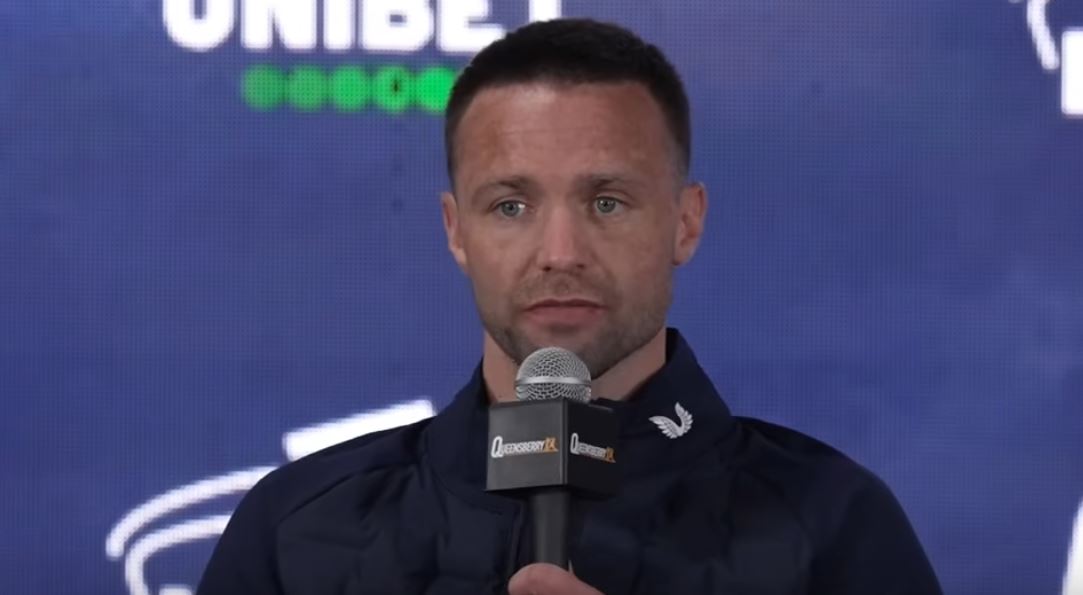
Josh Taylor, the Scottish boxing icon and former undisputed super-lightweight champion, has reached a pivotal moment in his career following his unanimous decision loss to Ekow Essuman on May 24, 2025, at the SSE Hydro in Glasgow. This defeat, marking his third consecutive loss, has sparked widespread debate among fans and analysts about whether it’s time for “The Tartan Tornado” to retire.
Taylor’s career trajectory has been remarkable, with significant achievements including unifying the WBA, WBC, IBF, and WBO titles at super-lightweight, as noted in his profile on Tapology. His victories over Ivan Baranchyk, Regis Prograis, and Jose Carlos Ramirez cemented his status as a top-tier fighter. However, his recent record tells a different story. Since his controversial split-decision win over Jack Catterall in February 2022, Taylor has faced setbacks, losing to Catterall in the rematch, then to Teofimo Lopez, and most recently to Essuman on May 24, 2025, with scores of 116-112, 116-113, and 115-113. This brings his record to 19-3, a stark contrast to his earlier undefeated streak.
The Essuman fight, in particular, highlighted concerns. Analysts observed that Taylor started strong but faded, with commentator Ade Oladipo noting, “the engine seemed to run empty very, very quick,” possibly due to inactivity, having fought only four times since 2021. Essuman, with a record of 22-1 and not considered elite, outworked Taylor, landing 140 of 636 punches compared to Taylor’s 125 of 493, as per Yardbarker. This performance against a lower-level fighter raises questions about his current competitive level.
At 34 years old, born on January 2, 1991, Taylor is at an age where many boxers experience a decline. The physical demands of boxing, including the accumulated wear and tear, seem evident in his recent fights. Reports from the Essuman bout describe him as “tired-looking” and struggling to maintain pace, suggesting stamina issues. This aligns with the natural aging process in combat sports, where reflexes, endurance, and recovery diminish, especially after years of intense training and fights.
Continuing to fight at this stage poses significant health risks. Boxing is inherently dangerous, with risks of concussions, brain injuries, and other long-term health issues, particularly for fighters past their prime. Taylor’s recent performances, where he took punishment from Essuman, a fighter not known for knockout power, highlight the potential for further damage. As a fan, the priority should be his well-being, and retiring now could prevent unnecessary harm, preserving his health for life after boxing.
Retiring now could solidify Taylor’s legacy as one of Scotland’s greatest boxers, remembered for his undisputed championship reign rather than a string of losses. His move to welterweight was intended to pursue a two-weight world championship, but after the Essuman loss, experts like Carl Frampton doubt this is feasible, stating, “I don’t think so” about Taylor’s return. Frampton also noted, “This guy was the elite of the elite, and he was a superstar. It’s clear that he’s not the fighter that he once was,” emphasizing the perceived decline. The likelihood of securing a title shot, such as against the winner of Mario Barrios and Manny Pacquiao, seems slim given his current form, further reducing his future prospects.
Despite the evidence, Taylor remains determined to continue. In a post-fight interview, he stated, “I would love to do it again, get it back, but he’s well entitled to go and do other things … I would love to get it done again, have another good fight. Cause it was a good fight … Thank you to everybody for the support. I’ll be back”. This stance creates controversy, as fans are divided. Some admire his fighting spirit, while others, including Frampton, believe it’s time to retire. Taylor also mentioned he would “take a little bit of time just to think about what’s coming” and not make hasty decisions, indicating he’s considering his options.
As a fan, it’s painful to see Taylor struggle, but the evidence leans toward retirement for his health and legacy. While his determination is inspiring, the risks outweigh the benefits at this stage. Boxing is unforgiving, and sometimes the bravest decision is knowing when to walk away, ensuring he can enjoy life post-boxing with his health intact.